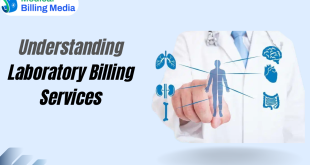Introduction
Imagine needing an emergency surgery but the hospital doesn’t have the necessary tools to perform it. This is the reality for millions of Africans living in regions where access to Surgical Equipments in Africa is limited. These tools are not just pieces of metal or plastic; they are life-saving instruments that make the difference between recovery and tragedy. In this article, we’ll explore how the lack of surgical equipment impacts healthcare across Africa, the barriers to access, and what’s being done to change the situation.
The Role of Surgical Equipment in Healthcare
Surgical equipment is at the heart of modern healthcare. From scalpels to ventilators, these instruments ensure that surgeries, whether planned or emergency, can be performed safely and effectively. Without proper equipment, even the most skilled surgeons are limited in what they can achieve. The availability of these tools plays a critical role in preventing deaths, reducing recovery times, and ensuring that patients receive quality care. Yet, many African hospitals and clinics face a severe shortage of essential surgical tools.
Challenges Facing Access to Surgical Equipments in Africa
Why is it so difficult to get life-saving surgical equipment to those who need it most? The reasons are complex and multifaceted. On one hand, economic constraints make it challenging for hospitals to afford expensive, high-quality equipment. On the other, logistical issues, such as poor infrastructure and difficult terrain, hinder the transportation of equipment to remote areas.
The Urban vs. Rural Divide in Healthcare Access
One of the most significant barriers to access is the urban-rural divide. While major cities in Africa may have access to modern healthcare facilities, including surgical equipment, rural areas often lack even the most basic healthcare infrastructure. Imagine a surgeon in a rural clinic, fully trained but unable to perform a critical surgery because the necessary equipment isn’t available. This divide between urban and rural healthcare access is a stark reminder of the inequities that persist across the continent.
The Impact of Cost and Affordability
Cost is another major barrier to accessing surgical equipments in Africa. Many hospitals simply cannot afford the high cost of surgical tools, especially when budgets are already stretched thin by the need for basic medical supplies and staff salaries. Additionally, imported equipment can be subject to high tariffs, further increasing the cost. For patients, this often means that essential surgeries are delayed or not performed at all, contributing to preventable deaths.
The Influence of Infrastructure on Equipment Accessibility
In many African countries, poor infrastructure is a significant factor limiting access to surgical equipment. Roads are often unpaved or poorly maintained, making it difficult to transport equipment to remote regions. Power outages are another common issue, affecting the operation of electrical surgical tools and machinery. Without reliable infrastructure, even the best medical facilities struggle to maintain and utilize their equipment effectively.
Global Partnerships and Donations
In response to these challenges, global partnerships and donations have played a critical role in improving access to surgical equipments in Africa. Non-governmental organizations (NGOs), international healthcare organizations, and donor countries have provided much-needed equipment to hospitals across the continent. These partnerships have helped bridge the gap, but they are not a long-term solution. Donations, while helpful, are often one-time efforts and do not provide the sustainability needed for lasting improvements.
Innovative Solutions in Africa
Despite these challenges, Africa has seen a wave of innovation aimed at solving the issue of equipment shortages. 3D printing technology, for example, has been used to produce low-cost surgical tools, providing a more affordable alternative to imported equipment. Mobile health units are another innovative solution, bringing essential healthcare services, including surgeries, to remote areas. These innovations demonstrate Africa’s resilience and ingenuity in the face of adversity.
Training and Skill Gaps Among Medical Professionals
While equipment is critical, having trained professionals who know how to use it is equally important. In many parts of Africa, there is a significant gap in training for medical professionals, particularly in rural areas. Surgeons and healthcare workers may not have the necessary training to use advanced surgical equipment, which limits its effectiveness even when it’s available. Training programs and partnerships with international medical schools are helping to address this gap, but there is still much work to be done.
Case Study: The Success of Mobile Clinics
One inspiring example of innovation is the use of mobile clinics to provide surgeries in remote areas. These clinics are equipped with the essential tools and staffed by trained medical professionals who travel to underserved regions. In places where hospitals are few and far between, mobile clinics offer a lifeline, delivering surgeries and other medical services directly to the people who need them most. This model is proving to be an effective way to address the challenges of access and infrastructure.
Government Efforts and Policy Changes
African governments are becoming increasingly aware of the importance of improving access to surgical equipment. Some countries have launched initiatives to reduce tariffs on imported medical equipment, making it more affordable for hospitals. Others are investing in local manufacturing of surgical tools to reduce dependency on international suppliers. These efforts are promising, but more coordinated, continent-wide policies are needed to address the issue at scale.
The Importance of Sustainable Solutions
While donations and global partnerships are helpful in the short term, sustainable solutions are key to long-term success. This means investing in local production of surgical tools, improving infrastructure, and ensuring that healthcare professionals are trained in their use. Sustainability also involves developing robust supply chains that can deliver equipment reliably and affordably to all regions, not just urban centers.
Community-Led Initiatives for Better Access
Communities across Africa are not waiting for governments or international organizations to solve the problem. Local initiatives, such as community fundraising for surgical equipment and partnerships between local hospitals, are making a difference on the ground. These grassroots efforts show that change is possible, even in the most challenging circumstances.
Future Prospects: A Path Toward Better Access
Looking to the future, there is hope for better access to surgical equipments in Africa. As technology advances and more attention is given to healthcare inequality, there is potential for lasting change. By focusing on sustainable solutions, empowering local communities, and fostering global partnerships, we can ensure that no one in Africa is denied access to life-saving surgeries due to a lack of equipment.
Conclusion: Bridging the Gap in Surgical Equipment Access
The lack of access to surgical equipments in Africa is a complex issue that requires a multifaceted approach. From addressing the urban-rural divide to fostering innovation and ensuring sustainability, there are many ways to tackle the problem. While challenges remain, there is hope for a brighter future where everyone, no matter where they live, has access to the tools that can save their lives.





